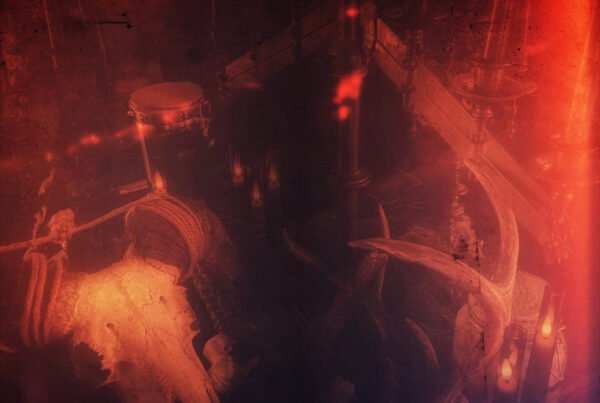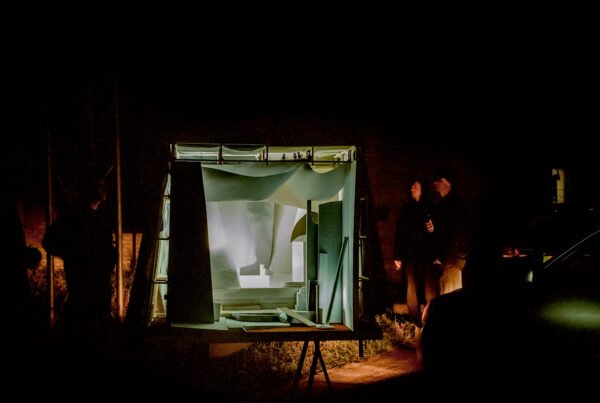Refusing to oversimplify the joys and terrors of life, Jason Isbell and the 400 Unit deliver their most potent mix of country and rock and roll on Weathervanes.
Release date: June 9, 2023 | Thirty Tigers | Facebook | Buy/Stream
Country music, at least in the last few decades, has focused on transforming the mundane into something profound. Trucks, drinks, and dirt have become lenses through which many acts try to decode and deconstruct their lives. While there can be clever observations from this approach, most of the time this ends up just coming off as pandering at best and at its worst, this approach is just flat-out bad. This has long been a gripe with fans of Americana and country music: most songs now are about lifestyle and less about life, and Isbell is in many ways a large part of the cure. Thankfully, there is a countermovement in this space that takes a more sincere approach to songwriting that doesn’t abandon the metaphor but takes a far more direct route to the truth.
Jason Isbell has long been a force in popular music, from his time in Drive-By Truckers to his solo act, and with his band The 400 Unit. The latter two entities have showcased his genuine fearlessness as a songwriter and artist by baring how his soul grapples with real life. Rather than oversimplifying the complexities of life to being something to get drunk about, Isbell gives these things the consideration they deserve. Look no further than the first song on this album, “Death Wish”, which grapples with loving someone who is suicidal. Heavy, right? Thankfully the entirety of Weathervanes isn’t quite this dour, but we’ll revisit this mood very soon.
Over the course of an hour, we get 13 songs that take us on a variety of emotional escapades that range in depth and tone. Personal experiences are melted into these songs that are still open to interpretation, but these topics and feelings aren’t so far into the abstract space that the weight of the emotion gets lost. “Middle of the Morning” deals with the varying degrees of feeling alone, grappling with blame, and bucking against his upbringing by striving to be emotionally available. These ideas are all delivered through beautiful wordplay: ‘I sit here on the tailgate like a farmhand’s ghost/Watch the roses bloom, watch ’em wilt away and die/’till I notice I’ve been cryin’ this whole time.’ There’s no doubt that Isbell loves poetry. Perhaps his heightened self-awareness is a demon that he knows by name, but it’s one that provides incredible clarity into his soul. A soul that is rife with experience but knows that there are questions for which answers may never appear but is desperately hoping to find them.
The idea of social consciousness is somewhat difficult to broach in modern country music, aside from the occasional political diversion. A depth that is almost never plumbed however is how to deal with events that we all see and all experience regardless of our political leanings. “Save the World” grapples with the near-constant reports of school shootings in the US and how that terrifies him as a father: ‘Balloon popping at the grocery store/My heart jumping in my chest/I look around to find the exit door/Which way out of here’s the best/The kids looking through the candy aisle/Schools starting in a week/A lady says you have a lovely child/And I’m too terrified to speak.’ I can’t tell you how many times that I listened to this, and nearly every time it brought tears to my eyes.
Aside from the brilliance in the lyrical content of Weathervanes, there are plenty of things to love about this album. While it closes in on an hour, it hardly feels like it thanks to the pacing and dynamics of each song, both sonically and lyrically. Some of the songs sit right on the surface and are easy to grasp while others require you to roll up your shirt sleeves and reach a little deeper to find the meanings. “Cast Iron Skillet” seems like a simple song at first, but the tendrils go deeper as the song progresses and deals with a loss of a different kind. There’s no black and white in Isbell’s world, aside perhaps from the notion that nothing is permanent.
I would also be remiss if I didn’t mention that it seems that Isbell has strengthened his vocal game across the board. Perhaps some of this comes with age and experience, but it adds to the emotional resonance of these songs. As tender as ever on “Strawberry Woman” and finding his upper limit on “This Ain’t It”, each working to maximize the effect of the lyric and the feeling. The same can be said of the instrumentation by the band. Each track is tastefully arranged and sounds like a perfect fit from the country shuffle of “If You Insist” to the rocking “When We Were Close.” There’s nothing that doesn’t work on Weathervanes.
There’s no denying the power of this album. It’s filled with raw moments that grasp what it is to be human, but not in just an artsy kind of way through some abstract expressionism. Isbell takes real stories, real experiences and filters them through his kaleidoscope of metaphors that enhances their impact rather than diminishing them. While this album is hardly recognizable as country, at least when compared to the modern scene, it carries on the genre’s traditions of expressing pain and joy and adds to it a lack of certainty that often refuses to take a side. These songs rather choose to observe and consider. There’s more curiosity than judgment. Weathervanes may go down as Jason Isbell and the 400 Unit’s finest hour, and I’m here to contribute to that notion.






